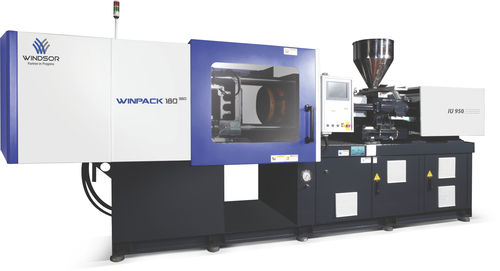What Are the Benefits of Qualified Business Income?

The Tax Cuts and Jobs Act (TCJA) of 2017 introduced significant changes to the U.S. tax code, including the creation of the Qualified Business Income (QBI) deduction. This deduction allows eligible taxpayers to deduct up to 20% of their QBI, providing substantial tax benefits for business owners. In this article, we will explore the various benefits of qualified business income, including tax savings, incentives for business growth, and implications for different types of business structures.
Understanding Qualified Business Income (QBI)
Definition of Qualified Business Income
Qualified Business Income (QBI) refers to the net amount of income, gain, deduction, and loss from any qualified trade or business. QBI includes income earned through sole proprietorships, partnerships, S corporations, and certain trusts and estates. It is essential to note that QBI must be generated within the United States to qualify for the deduction.
The QBI Deduction
The QBI deduction, also known as the Section 199A deduction, allows eligible taxpayers to deduct up to 20% of their QBI from their taxable income. This deduction is available to owners of pass-through entities, which are businesses that do not pay corporate income tax. Instead, the business income “passes through” to the owners’ individual tax returns.
Tax Savings
Reduction in Taxable Income
One of the most significant benefits of QBI is the reduction in taxable income. By deducting up to 20% of their QBI, business owners can lower their overall taxable income, which directly reduces their tax liability.
Example:
- A business owner with $100,000 in QBI can potentially deduct $20,000, reducing their taxable income to $80,000. This reduction can lead to substantial tax savings, particularly for high-income earners.
Lower Effective Tax Rate
The QBI deduction effectively lowers the marginal tax rate for eligible business income. This can be especially beneficial for taxpayers in higher tax brackets, allowing them to keep more of their earnings.
Example:
- Without the QBI deduction, a business owner in the 35% tax bracket with $100,000 in QBI would owe $35,000 in federal taxes. With a $20,000 QBI deduction, their taxable income drops to $80,000, resulting in $28,000 in taxes. This scenario saves the business owner $7,000 in taxes.
Incentives for Business Growth
Encouragement of Investment
The QBI deduction incentivizes business owners to reinvest in their businesses. The tax savings from the deduction can be used to fund expansion, purchase new equipment, or hire additional employees, fostering business growth and development.
Example:
- A small business owner saves $10,000 from the QBI deduction. This amount can be reinvested into the business to purchase new machinery, enhancing productivity and potentially increasing revenue.
Increased Cash Flow
By reducing the overall tax burden, the QBI deduction increases the cash flow available to business owners. Improved cash flow can help businesses manage day-to-day operations more effectively, cover unexpected expenses, and invest in opportunities for growth.
Example:
- A business owner with improved cash flow due to the QBI deduction can maintain a healthy reserve for emergency expenses, ensuring the business remains stable during economic fluctuations.
Benefits for Different Business Structures
Sole Proprietorships
Sole proprietors can significantly benefit from the QBI deduction, as it directly reduces the taxable income from their business operations. This benefit is particularly valuable for small business owners who may have limited resources for tax planning.
Example:
- A freelance graphic designer operating as a sole proprietor with $60,000 in QBI can deduct up to $12,000, reducing their taxable income and potentially moving them to a lower tax bracket.
Partnerships
Partners in a partnership can also benefit from the QBI deduction. Each partner’s share of the partnership’s QBI is eligible for the deduction, which can lead to substantial tax savings for all partners involved.
Example:
- A partnership generates $200,000 in QBI, with two equal partners. Each partner can deduct up to $20,000 (half of the total QBI), reducing their individual taxable incomes.
S Corporations
Owners of S corporations can take advantage of the QBI deduction by reducing the taxable income from their share of the business profits. This can result in significant tax savings, especially for high-earning S corporation owners.
Example:
- An S corporation owner with $150,000 in QBI can deduct up to $30,000, lowering their taxable income and overall tax liability.
Trusts and Estates
Certain trusts and estates with business income can also benefit from the QBI deduction. The income distributed to beneficiaries from these entities is eligible for the deduction, providing tax relief for the beneficiaries.
Example:
- A trust with $100,000 in QBI distributes income to its beneficiaries, who can then deduct up to 20% of their share of the distributed income, reducing their individual tax liabilities.
Encouragement of Specific Business Activities
Support for Pass-Through Entities
The QBI deduction specifically benefits pass-through entities, encouraging entrepreneurs to establish and maintain businesses in structures like sole proprietorships, partnerships, and S corporations. This support can lead to increased entrepreneurship and job creation.
Example:
- A potential entrepreneur choosing between a C corporation and an S corporation may opt for the S corporation structure to take advantage of the QBI deduction, promoting the growth of pass-through entities.
Incentives for Domestic Business Operations
Since QBI must be generated within the United States, the deduction encourages businesses to maintain and expand their domestic operations. This focus on domestic business activity can help support the local economy and create jobs within the country.
Example:
- A business considering outsourcing operations may decide to keep them within the United States to ensure the income qualifies for the QBI deduction, thereby supporting domestic employment.
Potential for Retirement Savings
Contributions to Retirement Plans
The tax savings from the QBI deduction can be redirected into retirement savings plans, such as a Simplified Employee Pension (SEP) IRA or a Solo 401(k). Contributing to these plans can provide additional tax benefits and help secure the business owner’s financial future.
Example:
- A business owner saves $15,000 from the QBI deduction and contributes this amount to a SEP IRA, reducing their current taxable income and growing their retirement savings.
Long-Term Financial Planning
By utilizing the QBI deduction and contributing to retirement plans, business owners can enhance their long-term financial planning. This dual benefit of immediate tax savings and future financial security can provide peace of mind and stability.
Example:
- A business owner who consistently saves on taxes through the QBI deduction and invests in retirement plans can build a substantial retirement fund, ensuring financial security in later years.
Compliance and Strategic Planning
Encouragement of Proper Record-Keeping
To maximize the QBI deduction, business owners must maintain accurate records of their income, expenses, and business activities. This encourages better financial management and compliance with tax regulations.
Example:
- A small business owner implements a robust accounting system to track income and expenses accurately, ensuring they can substantiate their QBI deduction claims.
Strategic Tax Planning
The QBI deduction encourages business owners to engage in strategic tax planning. By understanding the deduction’s rules and limitations, business owners can make informed decisions that optimize their tax positions and overall financial health.
Example:
- A business owner consults with a tax professional to structure their business activities and compensation in a way that maximizes the QBI deduction, resulting in significant tax savings.
Conclusion
The Qualified Business Income (QBI) deduction offers numerous benefits for business owners, including substantial tax savings, incentives for business growth, and support for various business structures. By reducing taxable income and lowering the effective tax rate, the QBI deduction can enhance cash flow, encourage investment, and promote domestic business operations. Additionally, the deduction fosters better financial management and strategic tax planning, contributing to the long-term success and stability of small and medium-sized businesses. Understanding and leveraging the benefits of QBI can provide significant advantages for business owners navigating the complexities of the U.S. tax system.
click here to visit website





